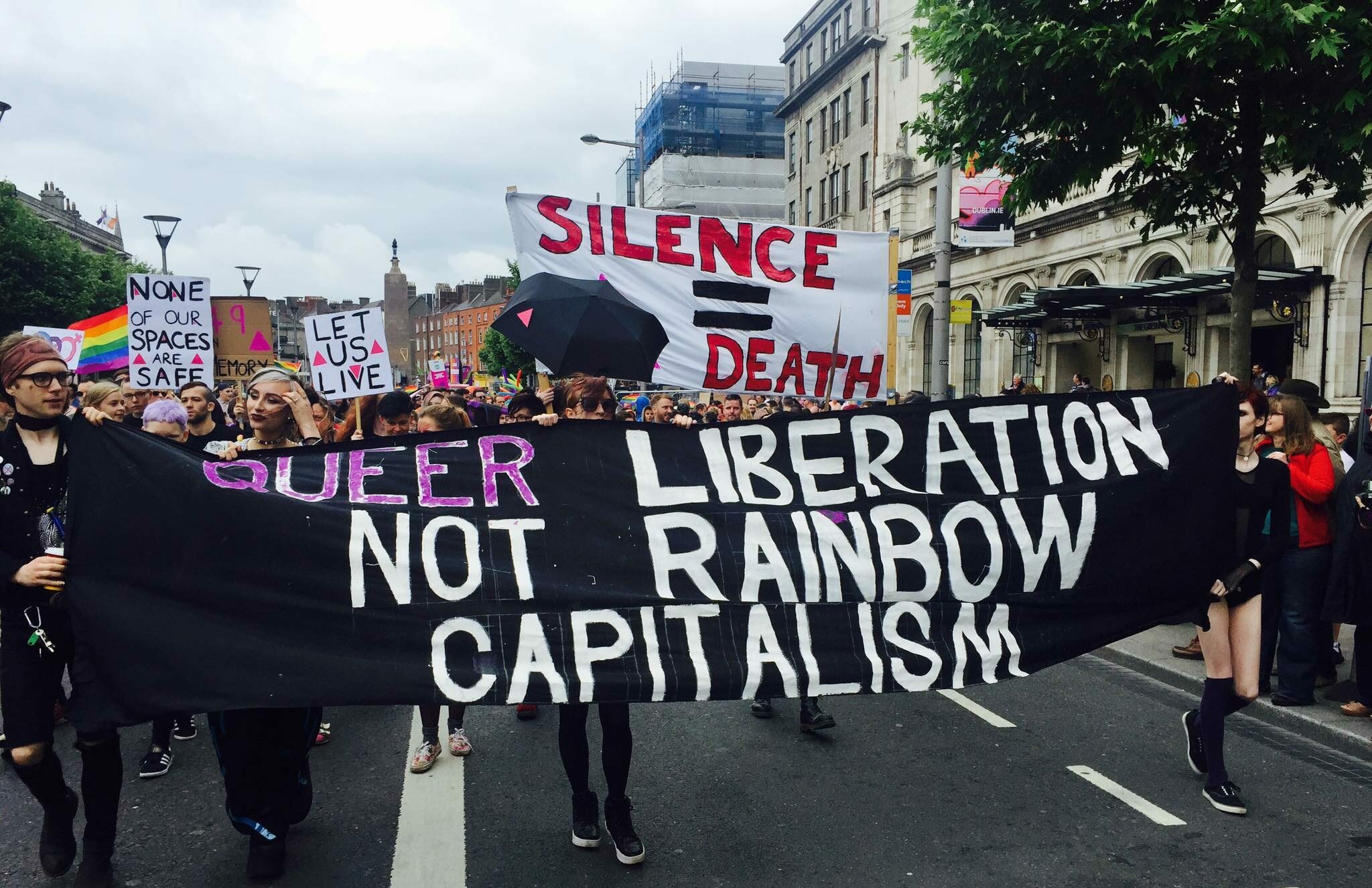
What is rainbow capitalism?
A rainbow onslaught occurs when brand logos, products, and social media handles change colours to show support during June. This is because Pride Month commemorates the 1969 Stonewall Uprising in New York City, which was led by trans people of colour against police brutality.
The first Pride march occurred in 1970, and since then, the annual celebrations have grown brighter and bolder, with corporations competing for advertising space on roads, in newspapers, and on the internet to demonstrate inclusivity. Today, consumer psychology, particularly among the younger generation, has evolved to the point where brand ethics play a role.
People want to associate with brands that share their sociopolitical values. While Pride Month recognises the struggles of the LGBTQIA+ community, rainbow capitalism refers to brands that try to capitalise on its universality through marketing gimmicks without making concrete efforts to help the marginalised group.
Rainbow capitalism, also known as pink capitalism or gay capitalism, occurs when businesses incorporate queerness and the LGBTQ+ rights movement into their marketing, products, and so on in order to capitalise on queer people’s purchasing power. Rainbow capitalism was a strategy used by businesses to market themselves as queer-friendly in order to attract LGBTQ+ customers. Rainbow capitalism was also intended to capitalise on the new wave of queer allyship. It thrives in part because of the acceptance of white gay, cisgender people, while erasing queer POC, because in our society those people aren’t as ‘socially accepted’ in terms of consumption.
Ultimately, rainbow capitalism emerged because LGBTQ+ people wanted to support businesses that supported them. But the present landscape has significantly evolved from that.
Why is rainbow capitalism harmful?
Rainbow capitalism centralises corporate interests and profit, making capitalism, in general, the focal point of numerous Pride events. Corporations profiting from rainbow capitalism have taken over the spaces created for queer people, ultimately making Pride less about protests, rights, and liberation and more about a way to turn a profit.
Unfortunately, as a result of rainbow capitalism, Pride has become more about consumerism- with people visibly ‘showing’ their allyship through purchased goods, rather than activism.
This actively eradicates homophobia and queer oppression.
By ignoring the root causes of queer oppression, the history of Pride, and the ongoing violence enacted against different intersections of the queer community, rainbow capitalism sweeps the core of Pride under the corporation’s colourful sponsored banners.
Tracing the genesis of rainbow capitalism
The Stonewall riots of 1969 sparked the LGBTQ+ liberation movement, which aims to decriminalise homosexuality and is distinguished by improved social and political integration, increased public awareness of homosexuality, and other characteristics. The HIV/AIDS pandemic sparked a backlash against the movement, which in turn sparked the creation of the queer movement by marginalised LGBT communities.
During the 1990s, gay people faced less prejudice, which increased their access to previously heteronormative jobs. As a result, the LGBTQ+ community now has more purchasing power, or “pink money.” Homosexuals held a disproportionate share of this purchasing power.
The dynamics of gay neighbourhoods, which drew LGBTQ+ people because of their affordability and the social security provided by living with other sexual minorities, are particularly representative of these processes. Many areas experienced gentrification after losing their social stigma and becoming “trendy.” Rising costs drove the LGBTQ+ community out because they couldn’t afford them. Parallel to these other events, a market focused on the LGBTQ+ community grew increasingly specialised. This market, which sells services and goods specifically designed to meet the needs of the LGBTQ+ community, was built around those needs. As a result, some companies and organisations began defending LGBTQ+ rights in their codes of conduct and corporate policies, and even funding LGBTQ+ events.
Present-day instances of rainbow capitalism
A lot of famous companies have taken part in ‘pinkwashing’. You may be surprised at some of the names you see on this list.
Mcdonalds: Often for pride month, Mcdonalds serves its French fries in rainbow containers, particularly in the United States, supposedly to show support for the movement. However, collectively McDonald’s, Walmart, and Amazon had donated more than $1 million to politicians who opposed The Equality Act, which aimed to outlaw discrimination based on gender identity, sexual orientation, and sex.
Adidas: Adidas has a special section of its site called the “pride pack” containing rainbow merchandise in honour of Pride Month. However, it also acted as one of the major sponsors for the 2018 FIFA World Cup, which took place in Russia, a country with anti-LGBTQ laws that made it unsafe for fans and athletes belonging to the community. This contradiction threw into sharp relief the emptiness that can lie at the centre of hollow corporate gestures of “support” for the LGBTQ community, which are actually just methods to earn money during Pride month.
Amazon: Amazon has recently been promoting its Pride Out Loud campaign to show its support for the LGBTQ+ communities and help their voices be heard. However, at the same time, they have donated thousands of dollars to various US senators who have publicly denounced LGBTQ+ rights.
Walmart: Although it sells Pride products, Walmart was sued for anti-gay discrimination in 2015 by a couple who had violated the business’s pre-2014 policy of refusing benefits to same-sex couples (unless required by state law.)
AT&T: AT&T encourages customers to join them in celebrating Pride, and sponsors the Trevor Project, an organisation that works to prevent queer suicide, while concomitantly donating money to politicians that view homosexual marriage as a “breakdown of the family”.
Furthermore, according to the Guardian, a study has shown that 25 companies including Walmart, AT&T and Comcast who have been eagerly selling LGBTQ+ merchandise during pride month to capitalize on sales and profits, have donated more than $10m to anti-LGBTQ+ federal and state politicians over the past two years.

